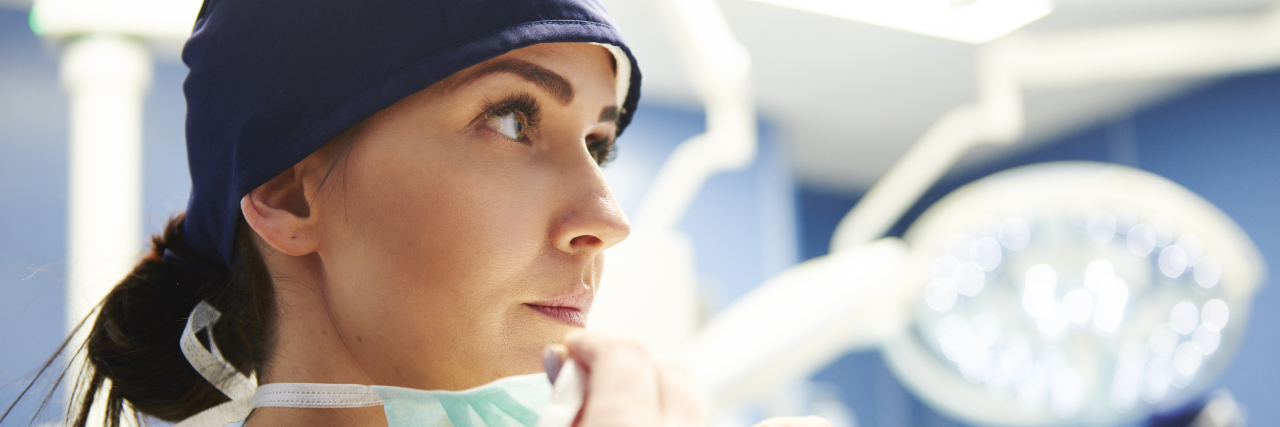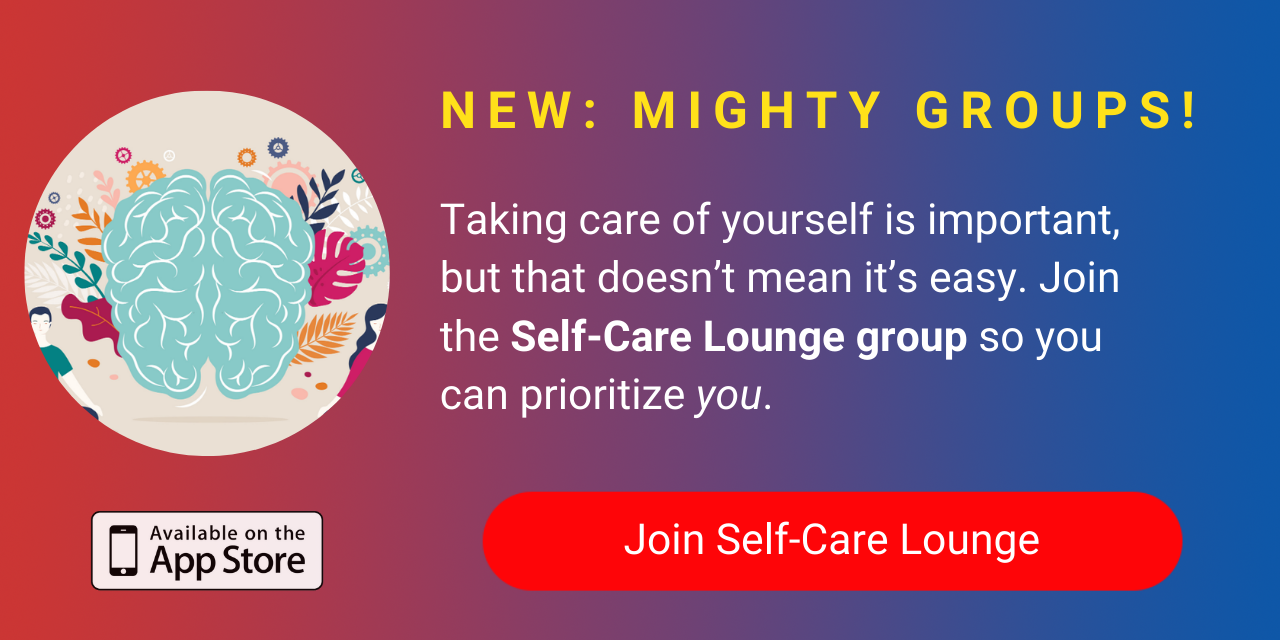My name is Jackie Anne. I am in my early 30s and am a nurse. I may have even been your nurse. Unknown to you, and many I work side by side with daily, I also have autism.
Adults diagnosed with autism work invisibly in many fields. Many of us have learned to “mask” throughout the day at work, to avoid the many stigmas that still follow being on the autism spectrum. These stigmas exist despite the increased amount of information available on neurodiversity (especially to healthcare workers). Masking can be easier in certain professions, due to the nature of work and amount of interaction with other people. Healthcare, an already difficult field to work in, can be an intensely overwhelming profession when you add sensory triggers, neurodiversity and systemic and interpersonal ableism.
Like many women with autism, I was diagnosed as an adult. I received my diagnosis during college at 19 years old, when my specific type was still being referred to as Asperger syndrome. Making the transition to higher education and living alone, I struggled with sensory overload and meltdowns. This time in life is a huge adjustment for anyone, never mind someone with an invisible, undiagnosed disability.
At the time, I thought my new diagnosis built a wall between me and any plans for my future. Due to the lack of information commonly available on autism at the time, nor any movement to integrate neurodiversity into our culture, all I knew was the stereotypes that felt foreign to my place on the spectrum. So, I finished my degree without telling anyone, and then struggled with underemployment (another issue many on the spectrum have) for several years post-graduation.
When I first started working in healthcare, I was extremely skeptical of how it was going to pan out. My then-partner’s family recommended I look into a job at a long-term care facility. I had only even considered it at the time to escape working retail. In the beginning, I experienced sensory overload in many ways, but quickly fell in love with the environment of my long-term care facility. I was working with persons with developmental disabilities, who, as you can imagine, I had great empathy for. I struggled with relationships with some of my coworkers, particularly those who felt the need to show their power over the patients we served in this institutionalized setting. Over time, I became incredibly happy in my role working with individuals who were more similar to me than not, building an excellent rapport with my patients.
An opportunity opened for me to go back to school and become a nurse. The thought was both exciting and terrifying. Working in my current capacity in healthcare was already overwhelming for me in so many ways, I wondered if I could overcome the added stresses and responsibilities of being a nurse. How was I going to handle life or death situations? Would I be able to quiet the constant noise inside my head, or translate neurotypical behaviors quickly enough to function at the high-pace speed that is required by the profession? Despite all my insecurities about my obstacles, I decided to go for it. My work made me confident that I am a good caretaker, and having that foundation to build on made me a little more comfortable.
Nursing school was extremely difficult for me. There were about 20 of us in my class. We went to class and clinicals five days a week for seven hours a day. I had, once again, decided that I should go through school without telling anyone about my diagnosis, including the teachers. Being back in school brought back a lot of the same issues that I had in high school and college. Most of my issues were social; however, when you are dealing with patient care, social ability is part of your grades.
Masking was exhausting, and I often only had enough energy to do it with my patients on clinical days. A handful of classmates would gossip about me within earshot, either not realizing I could hear or not caring. I would catch some of them rolling their eyes at me. One classmate kept calling one of the only two male nursing students we had “autistic” as an insult because she thought he was weird. Two students were consistently rather vocal about how “annoying” they felt I was. I knew my secret was not safe with any of them. Nonetheless, I not only graduated, I did so with honors.
After getting licensed, I quickly transitioned into my role as a nurse. I continue to work as a nurse in the same long-term care facility, but also work part-time in the outpatient offices of a local medical group. My autism challenges me every day in my career. Certain frequencies of noise make me anxious. When I first began a job outside of long-term care, I would listen to medical equipment sounds on a loop at home to get used to the stimulus.
The biggest sensory obstacle is touch. I do not like hugs (especially from strangers); I hate being touched by surprise. Handshakes make me want to scrub my hands until they’re raw. However, even quick interactions with patients, such as taking vital signs, require a lot of touch by me. While touching others is less problematic, it still adds to my “sensory quota” for the day.
At this point, many of my coworkers know that I dislike being touched. Most respect my boundary, even if they poke fun at it often. Despite constant reminders, certain providers I work under and some other nurses still hug me or touch me without asking, but I have accepted over time that their need to touch is sometimes as high as my need not to be touched. I grant more leniency to patients when it comes to touch. Being cared for can leave them very exposed and needing reassurance.
Social situations are still difficult for me. I have gotten better at reading other people and adjusting my language when speaking to patients. Making phone calls to patients regarding their health can be difficult because there is no visual to go along with the intonation of voice. My general affect tends to be either flat or exaggerated, with rarely any middle ground. Patients prefer exaggerated, and it is exhausting by the end of a workday.
While I still mask at my jobs to most of my coworkers and supervisors, I am finally being more open about my autism diagnosis in my personal life. I have hit a point in my adulthood where I am more accepting of who I am and what having autism means about me. My autism does not make me any less of a person, nor is it a reason to apologize. While my autism has given me challenges, it has shown me the kind of endurance I have for situations that would have made many adults in the same situation crumble.
I am an excellent nurse. I am the nurse you want taking care of you. I am an excellent nurse, not despite my autism, but because of it. My heightened senses make it so sometimes I can hear and see things others cannot. My sensitivity to touch assists in different kinds of palpation. If something seems abnormal in a patient’s chart, I often perseverate about it until I can either figure it out or find someone who can.
I am fiercely and exhaustingly empathetic; I honestly want nothing more than to help my patients. If I don’t understand or don’t know how to do something, I ask an annoying amount of questions until I’m sure I can do it safely. I am hyper-aware of cross-contamination, and am a bit obsessive with handwashing. I have an excellent memory and a desire to keep learning.
Lastly, I am a nurse that does not judge based on a diagnosis. As your nurse, I understand that you are so very much more than the list of diseases, disabilities and symptoms in your chart. As my (or anyone’s) patient, you deserve excellent care without judgment regardless of whatever diagnoses are listed in your chart.
I understand because I live this judgment daily. I understand because healthcare professionals are the only group of people I still consistently and blanketly mask in front of. I understand because the only thing worse than not knowing how professionals will respond to your diagnosis, is knowing exactly how they will. And the reason I know how so many healthcare professionals treat and think of patients with autism is because, as their masking coworker, they have told me at the nurses’ station and in the break room directly to my face. I hope as there is more integration in workplaces, and as more of us “unmask,” as I am in writing this article, that there will be a greater sense of understanding of the neurodiversity that surrounds us daily.
Getty image by GPoint Studio.


